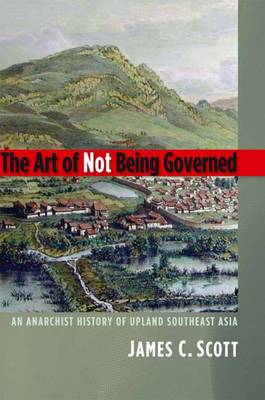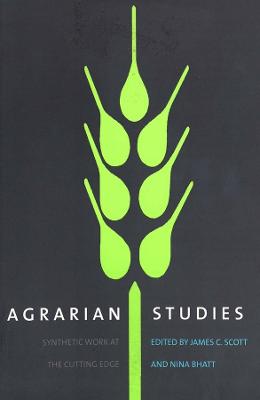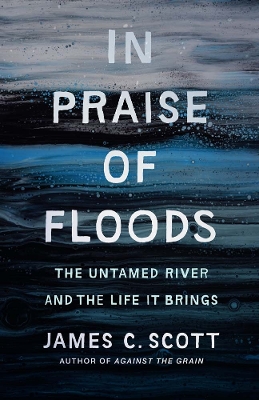Yale Agrarian Studies
3 total works
For two thousand years the disparate groups that now reside in Zomia (a mountainous region the size of Europe that consists of portions of seven Asian countries) have fled the projects of the organized state societies that surround them - slavery, conscription, taxes, corvee labour, epidemics, and warfare. The book is essentially an 'anarchist history', the first-ever examination of the huge literature on state-making whose author evaluates why people would deliberately and reactively remain stateless. Among the strategies employed by the people of Zomia to remain stateless are: physical dispersion in rugged terrain; agricultural practices that enhance mobility; pliable ethnic identities; devotion to prophetic, millenarian leaders; and, maintenance of a largely oral culture that allows them to reinvent their histories and genealogies as they move between and around states. "The Art of Not Being Governed" challenges us with a radically different approach to history that views events from the perspective of stateless people and redefines state-making as a form of 'internal colonialism'.
This new perspective requires a radical reevaluation of the civilizational narratives of the lowland states. Scott's work on Zomia represents a new way to think of area studies that will be applicable to other runaway, fugitive, and marooned communities, be they Gypsies, Cossacks, tribes fleeing slave raiders, Marsh Arabs, or San-Bushmen. In accessible language, James Scott, recognized worldwide as an eminent authority in Southeast Asian, peasant, and agrarian studies, tells the story of the people of Zomia and their unlikely odyssey in search of self-determination. Along the way he redefines our views on Asian politics, history, and demographics, and even our fundamental ideas about what constitutes civilization.
This new perspective requires a radical reevaluation of the civilizational narratives of the lowland states. Scott's work on Zomia represents a new way to think of area studies that will be applicable to other runaway, fugitive, and marooned communities, be they Gypsies, Cossacks, tribes fleeing slave raiders, Marsh Arabs, or San-Bushmen. In accessible language, James Scott, recognized worldwide as an eminent authority in Southeast Asian, peasant, and agrarian studies, tells the story of the people of Zomia and their unlikely odyssey in search of self-determination. Along the way he redefines our views on Asian politics, history, and demographics, and even our fundamental ideas about what constitutes civilization.
This book presents an account of an intellectual breakthrough in the study of rural society and agriculture. Its ten chapters, selected for their originality and synthesis from the colloquia of the Program in Agrarian Studies at Yale University, encompass various disciplines, diverse historical periods, and several regions of the world. The contributors’ fresh analyses will broaden the perspectives of readers with interests as wide-ranging as rural sociology, environmentalism, political science, history, anthropology, economics, and art history.
The ten studies recast and expand what is known about rural society and agrarian issues, examining such topics as poverty, subsistence, cultivation, ecology, justice, art, custom, law, ritual life, cooperation, and state action. Each contribution provides a point of departure for new study, encouraging deeper thinking across disciplinary boundaries and frontiers.
The ten studies recast and expand what is known about rural society and agrarian issues, examining such topics as poverty, subsistence, cultivation, ecology, justice, art, custom, law, ritual life, cooperation, and state action. Each contribution provides a point of departure for new study, encouraging deeper thinking across disciplinary boundaries and frontiers.
James C. Scott reframes rivers as alive and dynamic, revealing the consequences of treating them as resources for our profit
Rivers, on a long view, are alive. They are born; they change; they shift their channels; they forge new routes to the sea; they move both gradually and violently; they can teem (usually) with life; they may die a quasi-natural death; they are frequently maimed and even murdered.
It is the annual flood pulse—the brief time when the river occupies the floodplain—that gives a river its vitality, but it is human engineering that kills it, suppressing the flood pulse with dams, irrigation, siltation, dikes, and levees. In demonstrating these threats to the riverine world, award-winning author James C. Scott examines the life history of a particular river, the Ayeyarwady (Irrawaddy) of Burma, the heartland and superhighway of Burman culture.
Scott opens our understanding of rivers to encompass their entirety—tributaries, wetlands, floodplains, backwaters, eddies, periodic marshlands, and the assemblage of life forms dependent on rivers for their existence and well-being. For anyone interested in the Anthropocene and the Great Acceleration, rivers offer a striking example of the consequences of human intervention in trying to control and domesticate a natural process, the complexity and variability of which we barely understand.
Rivers, on a long view, are alive. They are born; they change; they shift their channels; they forge new routes to the sea; they move both gradually and violently; they can teem (usually) with life; they may die a quasi-natural death; they are frequently maimed and even murdered.
It is the annual flood pulse—the brief time when the river occupies the floodplain—that gives a river its vitality, but it is human engineering that kills it, suppressing the flood pulse with dams, irrigation, siltation, dikes, and levees. In demonstrating these threats to the riverine world, award-winning author James C. Scott examines the life history of a particular river, the Ayeyarwady (Irrawaddy) of Burma, the heartland and superhighway of Burman culture.
Scott opens our understanding of rivers to encompass their entirety—tributaries, wetlands, floodplains, backwaters, eddies, periodic marshlands, and the assemblage of life forms dependent on rivers for their existence and well-being. For anyone interested in the Anthropocene and the Great Acceleration, rivers offer a striking example of the consequences of human intervention in trying to control and domesticate a natural process, the complexity and variability of which we barely understand.


